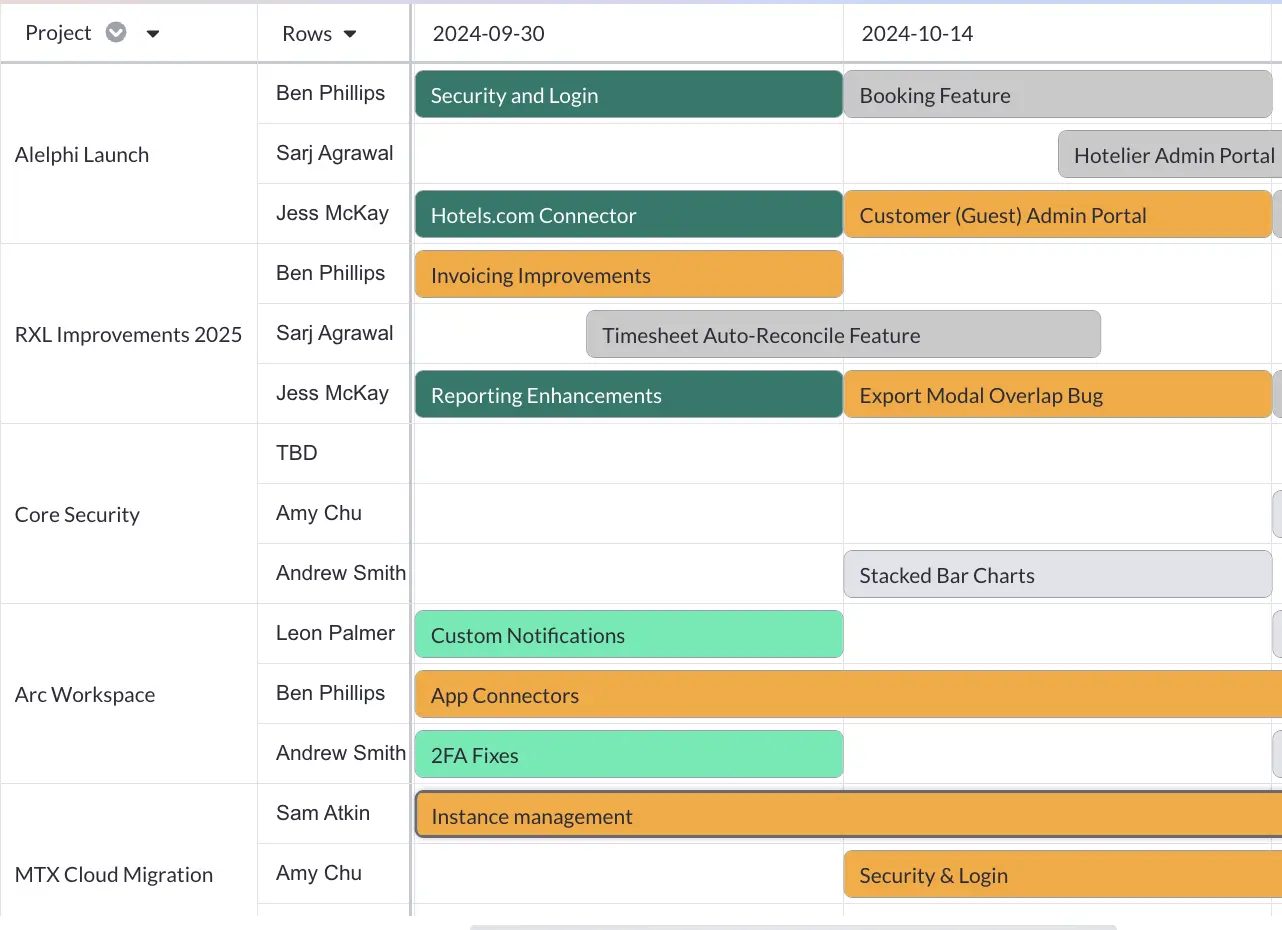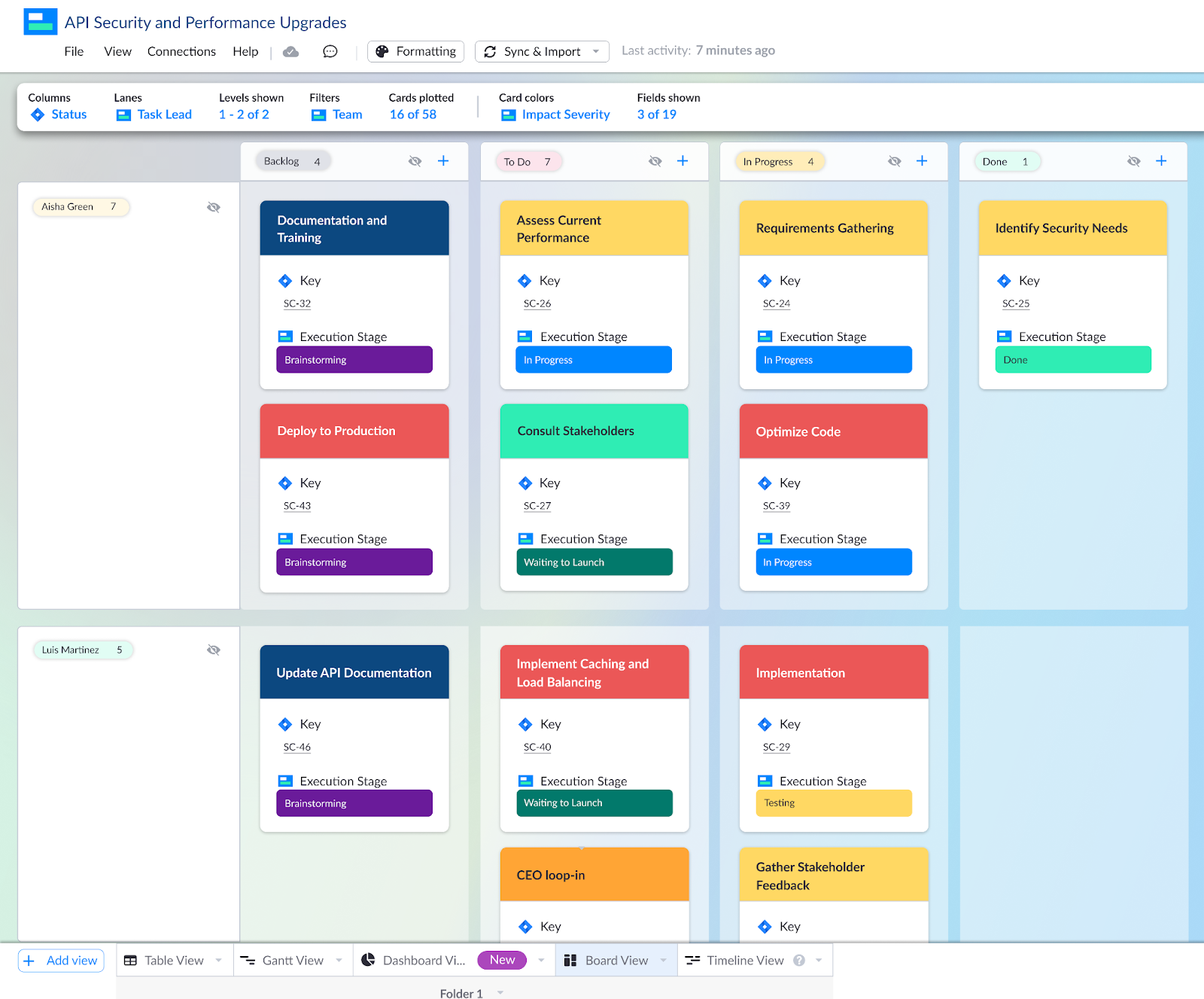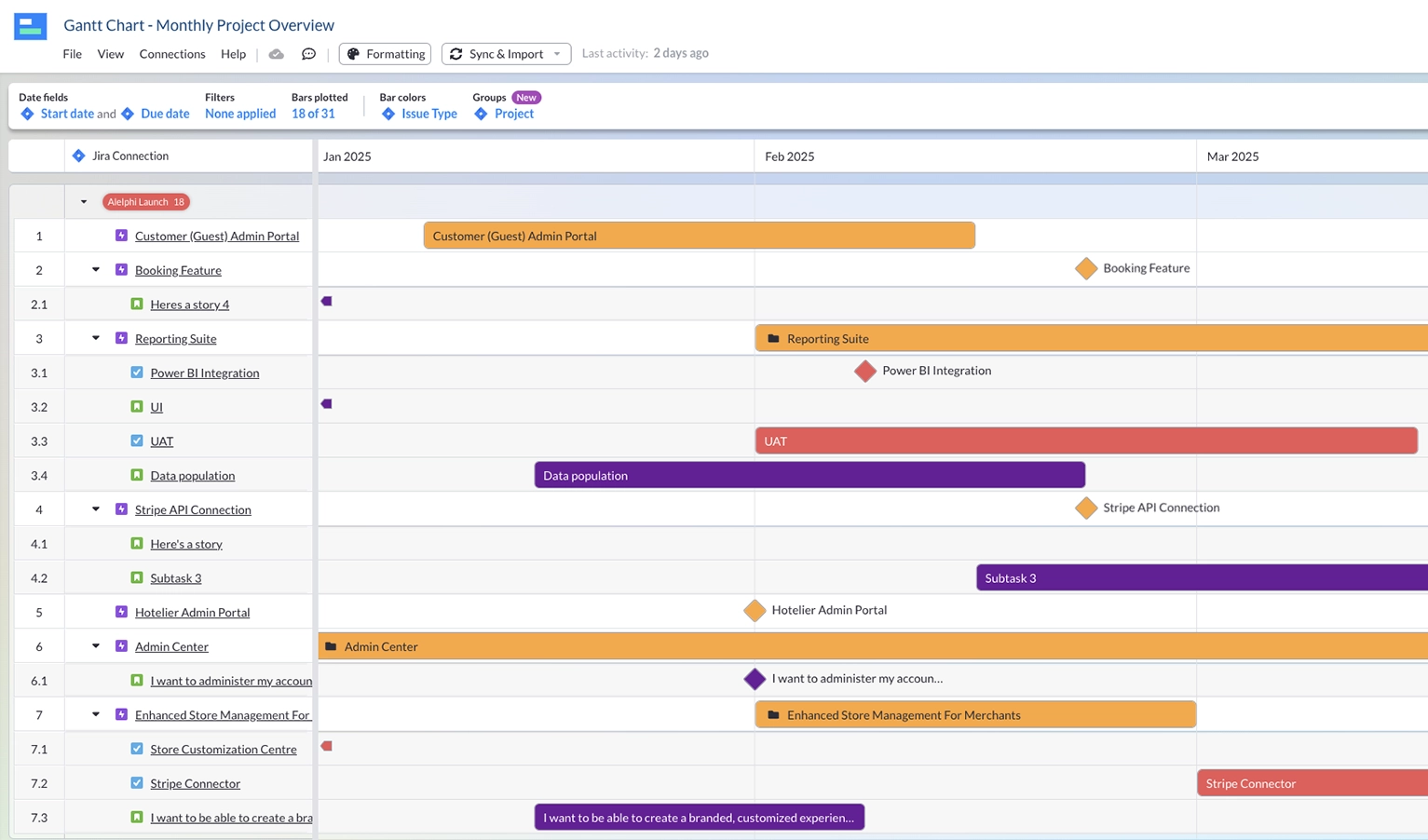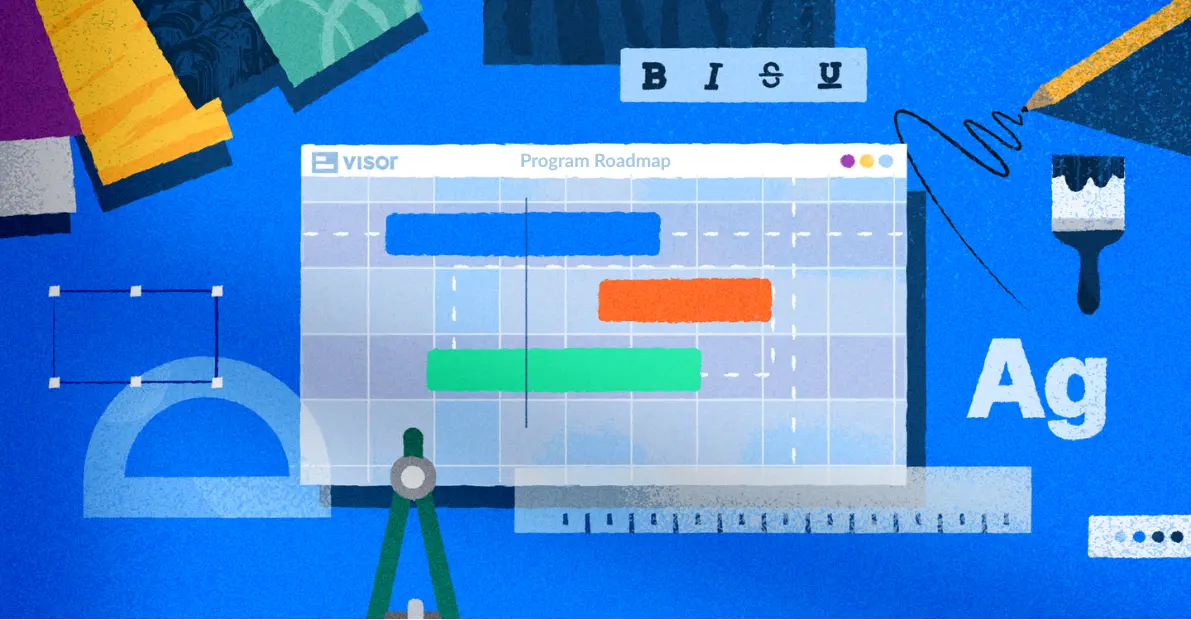
Delegation in Project Management: Why It’s Crucial To Success and How To Do It
Delegation in project management can go against our instincts to maintain personal control over important tasks, but as project managers we must let go and delegate for our projects to be as successful as possible.
No one can do it all, and when it comes to project management, you shouldn’t try. But it’s not always easy to know when to hand off tasks and when to handle them yourself. In fact, studies show that “knowledge workers spend 41% of their time on work that could be handled by others.” When more than 51% of project managers are handling 2-5 projects at a time, that can add up to a lot of extra work.
But if you know how to delegate, you can keep your workload to manageable levels. And if you’re one of the many PMs out there struggling to delegate, we’re here to help. We’ve put together a comprehensive guide to help you learn the ins and outs of delegation in project management. In this post, we’ll dig into:
- What delegation is and why it’s important
- When you should delegate as a project manager
- How to delegate
- Tools that will help you delegate projects
Visor is the ultimate tool for successful cross-team delegation. Set up swimlanes, unique views, and more, with the ability to pull back and see the full picture from any view. Try today, free.
What is delegation in project management?
Delegation is as simple (and difficult!) as assigning tasks, responsibilities, and authority to team members or stakeholders to achieve project objectives. That definition doesn’t change much for project management. Project managers can (and should!) delegate different parts of a project to team members based on their skills, expertise, and availability.
The Importance of Delegation In Project Management
Delegation is a necessity for project managers. There are some solid reasons for that:
- It helps you avoid burnout. Delegation lets you make sure all the work gets done without running yourself into the ground. If you’re doing most of the project work, plus running your team, your team is going to be twiddling their thumbs while you lose your mind.
- You can focus on higher-level tasks. As a project manager, you’ve got some big-picture thinking to do. Delegation lets you focus on tasks like project planning and backlog grooming instead of getting bogged down in the details.
- It empowers your team. There’s nothing more frustrating as an employee than feeling like you’re not using your skills to their fullest extent. Delegation gives teammates autonomy and allows them an opportunity to expand their skill set.
- You encourage innovation. When you trust your team to handle tasks on their own, they might surprise you with what they come up with. Innovation happens when team members feel like they have the freedom to think outside the box.
4 Excuses to Avoid Delegation in Project Management (and how to Overcome them)
All right, so we’ve covered the benefits of delegation, but let’s face it, you probably already know delegation is important. So if you haven’t been delegating, you’ve probably been giving yourself one of the following excuses. Here’s how to get past those excuses and start taking back your time.
- “It’s going to take longer to explain this than if I just did it myself”: You’re awesome! But your team is too. And letting them take over project tasks will let you spend your time on your actual job as a PM.
- “No one knows how to do this but me”: If you’ve got all that project management knowledge locked up in your head, it’s time to set yourself free. Spend some time writing down what you know or training your team – then start delegating.
- “I don’t trust the team member I need to give this to”: Sometimes the difference between a competent team member and one you don’t trust is training. Take time out to show them what you need them to do – teaching is a key part of delegation.
- “My teammates are already swamped”: This is where your project manager bona fides come into play. See what you can reprioritize to give your team the space they need to focus on this new task.
In short, if you’re working nonstop and your team… isn’t, something’s got to give. While it may take a little time to get started delegating, it’ll save you work in the long run – so give up those excuses and get to (sharing) work.
When should a project manager delegate tasks?
So you’re onboard with the idea of delegation in project management – but when should you actually be delegating tasks? You can’t actually delegate everything – some tasks are too important or job-specific to assign to another teammate. So when should you be delegating work?
- When tasks match your team member’s area of expertise or experience: Sometimes it’s as simple as looking at what a teammate can do. That’s often straightforward – the copywriter should be writing copy; designers should be designing. However, in more complex cases, consider the teammate’s skillset. For example, in IT or development find out what languages team members know best or what do they have experience in that might be helpful for a given task.
- When it’s a routine task: If you’re doing the same thing in the same way from week to week, it may be a good task to delegate to another person on your team.
- When it offers room for team members to develop new skills: Delegating tasks can provide valuable development opportunities for team members. Project managers should look for tasks that will stretch team members’ skills, challenge them to learn new things, and help them grow professionally.
How do you delegate a project?
Now you know when to delegate – let’s talk about how you actually delegate. Take a look at the step-by-step process for delegation in project management so that you can track your team’s progress without taking over yourself.
- Identify what you’re delegating. Determine the tasks that need to be completed as part of the project. Break down the project into smaller, manageable tasks that can be assigned to team members. You know, general project manager stuff.
- Choose the best people for each task: Assess the skills, knowledge, and expertise of your team members to determine who is best suited to handle each task. But don’t just look at experience, also consider team member availability when you assign tasks (some of the tools below can help you out with that).
- Be SMART: SMART stands for Specific Measurable Attainable Relevant and Time-bound. In terms of delegation, SMART offers guidelines for goal setting for your team. Some elements of assigning SMART goals include, giving directions that are clear and detailed, with measurable goals for success. You should also share expectations that are reasonable and give concrete deadlines.
- Offer support: Clarify any questions or concerns and ensure that team members understand their responsibilities. You should also share any necessary resources or support your team members will need.
- Monitor progress: Check in on progress regularly. Ask team members how they are progressing, address any issues or concerns, and provide feedback as necessary. After all, you’re still the PM here, and it’s important to make sure tasks are on track. You can also establish checkpoints or milestones in Gantt charts to track progress and ensure that tasks are on track.
- Trust your team: While you should monitor progress, you shouldn’t micromanage. Empower team members to make decisions and take ownership of their assigned tasks. Encourage autonomy and initiative, and trust team members to deliver results.
- Give feedback and recognition: Let team members know how they’re doing by providing feedback on completed tasks. And don’t forget to celebrate team members for their contributions.
- Look back on how you did: Assess how effective your delegation was after the fact. You can review the outcomes of delegated tasks and identify any areas for improvement. That way you can make adjustments to optimize how you delegate in the future.
- Measure and monitor performance: Ensure you run a project health check and implement some key project health metrics to monitor task performance without being intrusive or micro-managing. This will enable you to intervene only when necessary, while ensuring there’s proper oversight.
Tools to Help you Delegate
Delegation is a lot easier if you have the right tools to manage your project. Keeping track of tasks, keeping stakeholders up-to-date, and allowing your team to collaborate are all key parts of delegating for project managers. Here are a few tools to consider as you dive into delegating:
Project management software
We wanted an easier way to handle all aspects of project management, including savvy delegation. That’s why we made a tool for it. Try Visor today, free.
The best project management software for you will depend on a range of factors, including the complexity and scale of your projects, the size of your team/organization, the importance of ease of use vs. functionality like advanced reporting, and of course your budget.
For example, Jira is a very robust, complex, heavy-weight project management tool. It’s the longtime leading project management tool for IT and Dev teams, although Jira is increasingly used for managing all kinds of projects too, for example many marketing teams now use Jira.
Most project managers use plugins to tailor Jira to their specific needs, including to make delegation and tracking your direct reports’ work much more easy and transparent.
Alternatively, Asana offers a flexible, relatively easy to use tool. But it is expensive and some of it’s visualizations (like its Gantt charts) are a bit basic, which leads many to find alternatives to Asana that are more robust and/or affordable. For example, you can compare Visor and Asana.
Then you have more spreadsheet oriented project management tools like Smartsheet, which is great for complex formulas and workflows, but is a bit too heavy and complex for most project managers. It also isn’t the best for improving collaboration and delegation either, which is why an increasing number of people are switching to an alternative to Smartsheet.
Data-sharing software
Not everyone can or will use project management software. Spreadsheets, or spreadsheet-inspired workspaces, like Visor, offer quick and easy ways to share information with teammates as well as people outside your team. For instance, Visor lets you share information with stakeholders, even if they don’t use your preferred project management tool. It’s a good way to keep all teams, contractors, and C-Suite in the loop.
Collaboration software
Delegation still involves a lot of information sharing and collaboration. Tools like Miro, Notion, or Github let you convey ideas so that you can make sure your whole team is on the same page.
The software you select is really based on what you want to do. Miro, for instance, is great for in-meeting brainstorming. Github lets your programmers share code. Confluence or Notion are good choices for maintaining team wikis and sharing info you know that’ll help teammates handle tasks you’ve delegated to them.
The best agile collaboration tools not only give you a place to work together, they also include tools that enhance collaboration, streamline collaborative processes, and remove much of the admin and manual lifting that restricts or discourages people’s ability and desire to collaborate.
Visualization and Planning software
Tools like Visor improve your ability to delegate, track, manage, and visualize tasks within projects, and across multiple projects. Visor’s visualizations are also crystal clear and beautiful, making them ideal for sharing.
Timeline view in Visor with swimlanes for project and rows for the task assignee:

Kanban board view in Visor using swimlanes to organize and track work by person delegated work:

Project Portfolio Management Software
Sometimes you are managing multiple projects simultaneously and need a high-level view of all those projects in one place, or a comprehensive view of how all the different tasks (especially your delegated tasks) across those projects are progressing.
To do this you’ll need project portfolio management software, (PPM for short). But most PPM systems are ludicrously expensive, leaving even relatively large organizations without a solution. However, Visor gives you the core, necessary functionality of a PPM system at a price all organizations can afford.
There’s also a free trial, so you can try it out for free and see if it helps you take control over all the projects you’re responsible for.
Communication software
Part of delegation is keeping the lines of communication open. Simple tools like Slack or even email can help you keep track of where projects are without running everything yourself.
Embracing Delegation in Project Management
In the world of project management, mastering the art of delegation is not just a skill but a necessity. Effective delegation empowers both you and your team, letting you accomplish more with less stress for everyone. By recognizing the importance of delegation, understanding when and how to delegate tasks, and leveraging the right tools and strategies, project managers can unlock their team’s full potential while ensuring project objectives are met efficiently and effectively.
Remember, no one can do it all. Instead, embrace delegation as a powerful tool for distributing workload, empowering team members, and fostering collaboration. By delegating strategically and providing the necessary support and guidance, project managers can create a culture of trust, accountability, and success within their teams.
If you’re interested in getting your team into crystal clear alignment so that everyone can do just what they need to do, Visor can help. Get started today, for free.
Visor also offers tons of templates you can use to share project plans. Whether you need a simple Gantt chart template or a project portfolio management template to share multiple projects, Visor likely has a template to make it easy.
Example of Monthly Gantt Chart Template with Jira Data:






